Written by: Raabia Hawa
There are few things that can crush my heart. I suppose after coming across hundreds of elephant carcasses lying abuzz with maggot-filled cavities in pools of thickening blood, there is little that really can move you to tears.
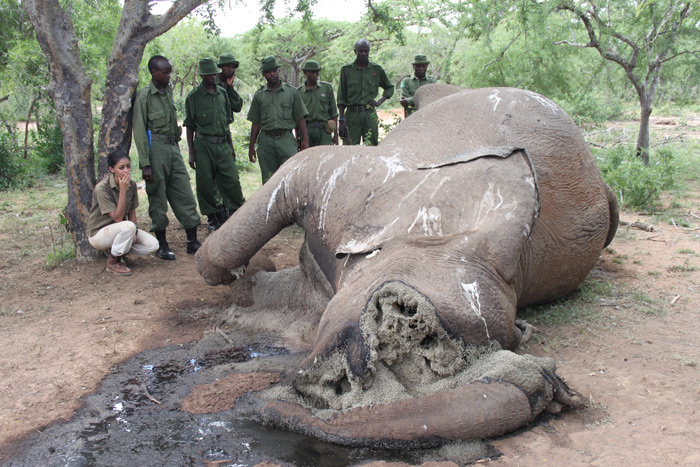
How funny it is then that I was moved to tears watching grown men and women – diplomats, delegates, and professionals – make a decision that even a five-year-old could see is just plain wrong.
I attended the CITES 17th Conference of the Parties because I felt it was necessary to understand the workings of a system that makes decisions, which inevitably have an impact on myself, future generations and everyone on the frontline in the war against poaching.
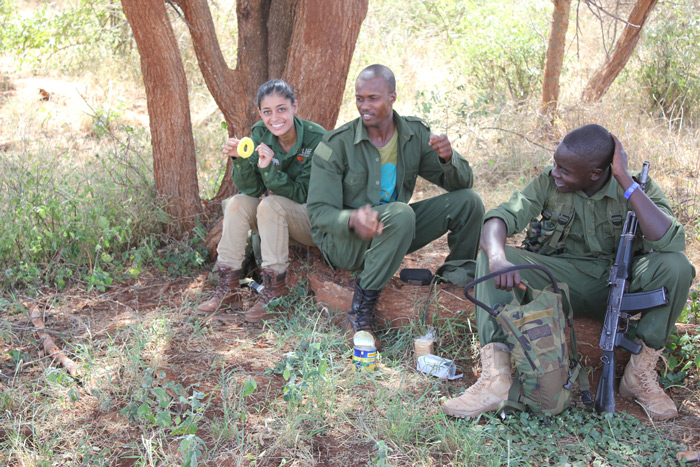
I pulled together my savings and struggled to get letters of confidence in order to get the necessary accreditation to attend this global market of endangered wildlife and their parts.
The first thing that struck me on arrival at the CoP17 was the jaw-droppingly lavish setting. I walked up to the Sandton Convention Centre and joined the demonstration outside, where people of all ages, nationalities and from all walks of life, shouted their throats sore for elephants, rhinos and lions. “What do we want?” They shouted, and the children, some as young as just five years old, shouted back, “Appendix 1!”
I began my CITES experience with such high hopes. Surely the voices of children, rangers, conservationists and the general public would not go unheard?
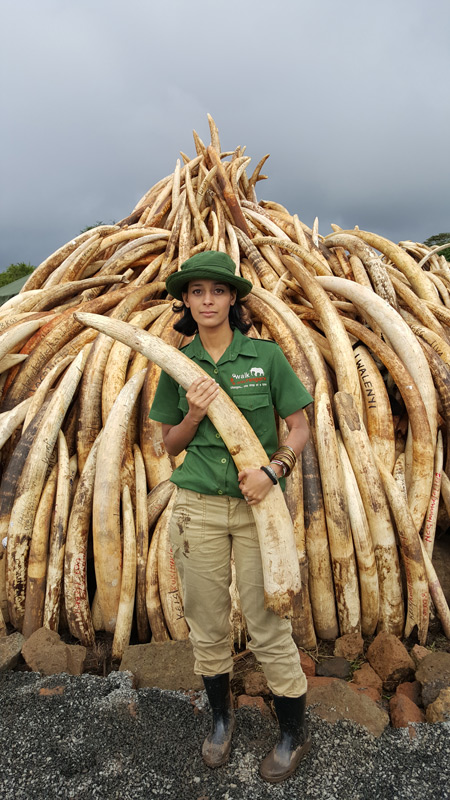
I made my way in to get the all-coveted pass and felt so grand wearing it around the arena. Initially, it was difficult to move around as there were so many simultaneous side-events, and my amazing mentor, Will Travers, kept getting pulled into things, so I explored alone for a while.
Through my interactions with numerous people, I discovered there were WhatsApp groups that I requested to be added to. These groups made it so much easier for me to know what was happening around me, to find out which working groups were meeting and where, and what critical proposals were coming up in the committee sessions.
And that’s where it all went down…
That is where I watched the EU let down an entire species to support a few greedy men that satiate the hunting industry. Never in my life had I heard such impassioned speeches in support of decimating entire species in order to line a few pockets. I began to feel sick to my stomach and it became harder each session to hold back my tears.
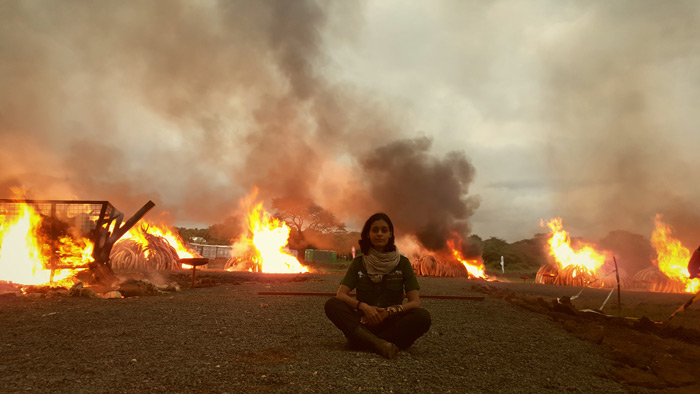
But it was on Tuesday that I broke. Everyone had been talking up this day. “Tomorrow’s the big one,” people kept saying in the corridors and around coffee tables.
My elephants were on the line.
The morning began with a prayer and briefing at the African Elephant Coalition room. We would stand strong for our mighty Ndovu.
Proposal 14, 15 and 16 were in session. My heart was beating so fast as I celebrated the small victories against the ivory trade proposals, and then it was time for the proposal of the AEC to uplist elephants to Appendix I.
The room was packed to the brim as everyone came in to witness the debate, clinging to hope (some for elephants, some for their lust for money). And so it began.
One side was fighting for the survival of a species, the other to destroy it. Passionate and polarised arguments fought this ultimate war of words.
For those of us on the field, let us always cling to the pillar of strength that for me now is Botswana. Agreeing to relinquish its Appendix II listing for elephants, and ban all ivory until 2025, this Southern African nation has ignored the voices of greed and heard the plight of future generations and a species in need.
I felt so helpless sitting in the back of the room and realising how different South African value systems are from the rest of Africa.
Antigua and Barbuda, Bahrain, Belize, Brazil, Canada, Chile, Cuba, DRC, Fiji, Gambia, Guyana, Iceland, Indonesia, Japan, Kuwait, Liechtenstein, Madagascar, Malawi, Maldives, Mexico, Mozambique, Myanmar, Namibia, Norway, Peru, Rep. Korea, Russian Federation, St. Lucia, Saudi Arabia, South Africa, St. Vincent and the Grenadines, Swaziland, Switzerland, Tajikistan, Tanzania, Uruguay, Vietnam, Zambia, Zimbabwe, China and shockingly, the United States of America (despite President Obama’s Executive Order against ivory and rhino horn trade) all voted against giving elephants the highest level of legal international protection.
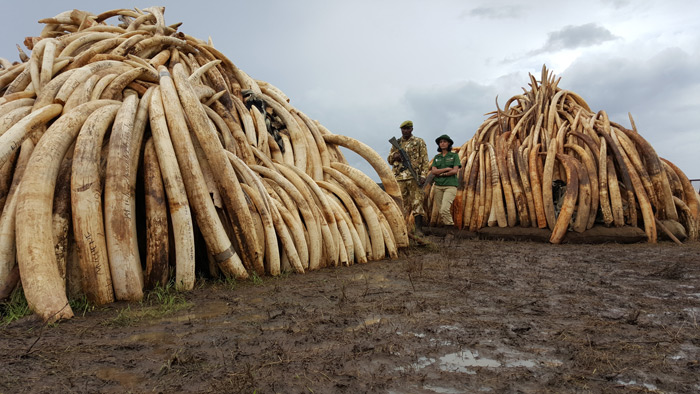
But what swung the vote was the EU. With their block voting right counting for 28 votes, and a need for a two-third majority in favour of elephants to win, they callously and unashamedly denied Africa’s elephants any hope, and they denied me and future generations the same.
The EU managed to do what no poacher has done. Without mercy and devoid of ethics, the EU hacked away my heart, leaving me lying motionless in a pool of tears at the back of a room where flags of the world acted as my backdrop.
What will I tell the rangers when I go back home? What will I tell the families of those who died protecting this gentle giant we call Ndovu? CITES reconvenes in three years. Possibly by that time, Africa will have lost a further 100,000 elephants. And that is if the current rate of poaching does not increase with this lack of international protection for elephants, which I would say is quite unlikely.
I may not know what to say to the teams back home, but I will say this – unashamedly and without fear: If anything happens to me on the field between now and then, I will know in my heart who is to blame.
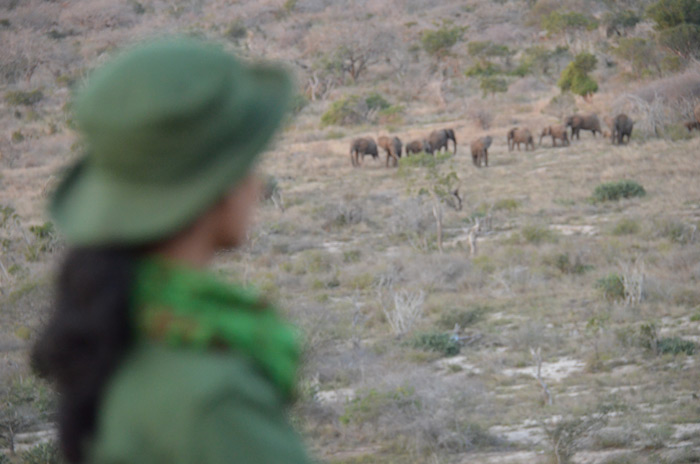
To comment on this story: Login (or sign up) to our app here - it's a troll-free safe place 🙂.![]()






